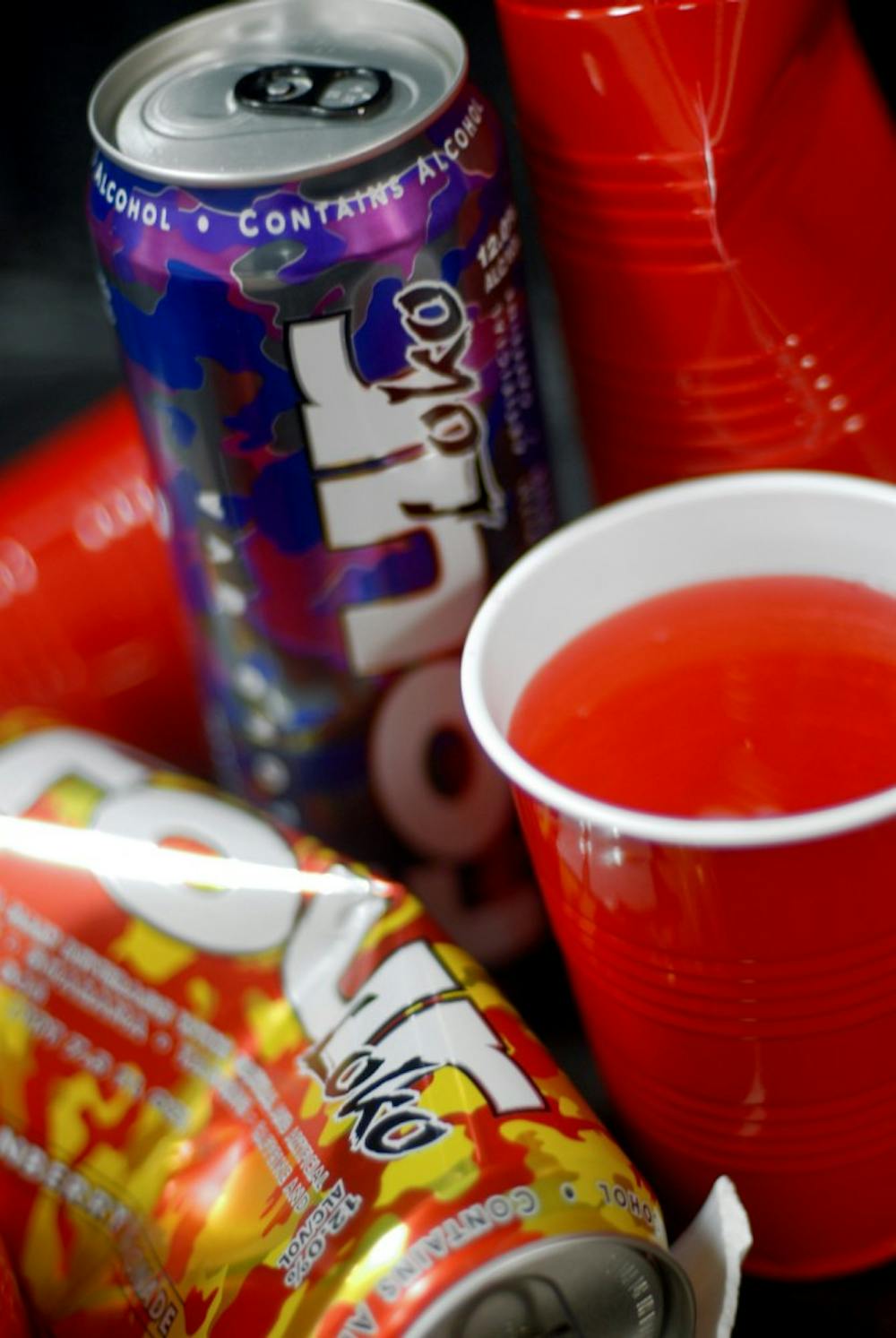
Dubbed a “blackout in a can,” Four Loko has found its way on to college campuses nationwide since its debut in 2008. But in the wake of recent hospitalizations, students and experts alike are questioning whether the alcoholic energy drink is worth a trip to the emergency room.
A College freshman and Four Loko enthusiast, who wished to remain anonymous because he is not 21, said the drink “gives you energy and keeps you from crashing” while still providing the inebriating effects of alcohol.
In defense of the product, a press release from Phusion Projects, the company that created Four Loko, noted that “people have safely combined caffeine and alcohol for years” in the form of “rum and colas, Red Bull and vodkas and Irish coffees.”
Nine students were hospitalized at Central Washington University on Oct. 8 due to the drink’s effects, prompting administrators to ban the beverage on campus. Other universities, including Ramapo College in New Jersey and — more recently — the University of Rhode Island, have banned Four Loko after similar incidents. Penn has not yet taken similar action.
However, according to Law School professor Theodore Ruger, banning it on college campuses does not necessarily mean the end of its consumption.
“To put it in Penn context, Penn has no authority over what its students do in Center City or West Philadelphia in terms of buying and using these drinks,” Ruger said.
However, legislation at the state and federal level may ban such drinks from liquor store shelves.
“The fact that it’s a combination of caffeine and alcohol” means “that it’s a combination of jurisdictions,” Ruger explained.
Under the 21st Amendment, states retain control over alcohol regulation. However, the federal Food and Drug Administration holds the authority to regulate artificial additives — including caffeine — in food and drinks, thus giving the FDA “authority to investigate, regulate and even ban the use of caffeine as an artificial additive in alcoholic beverages,” Ruger noted. The FDA will investigate Four Loko and dozens of similar products for their health and safety effects.
Pairing alcohol with caffeine at a low price may contribute to the drink’s appeal for students, according to Terri Brownlee. Brownlee is regional director of nutrition at Bon Appetit Management Company, Penn’s dining provider.
The drink contains from six to 12 percent alcohol by volume and its caffeine content is equivalent to that of a cup of coffee.
Brownlee added that its variety of flavors, including fruit punch, cranberry lemonade and watermelon, contribute to consumer appeal, but its negative physical impacts linger longer than the taste.
Because these beverages “are a combination of very strong stimulants with alcohol … as somebody drinks them, the effects of the alcohol get masked,” she said.
Students, therefore, “can overconsume and go beyond their limit … and not realize it,” Brownlee added. Additionally, because both caffeine and alcohol are dehydrating a “severe hangover” is more likely than with other beverages.
According to Pennsylvania Liquor Control Board spokeswoman Stacey Witalec, in light of the recent health incidents and research, this week the board encouraged its approximately 17,000 licensees “to stop any promotion, sale or marketing” of any drink that falls into the caffeinated alcoholic beverage category “until the FDA determines it’s safe for consumption.”
“If you understand your own limits, Four Loko is no different than any other alcohol,” said the College freshman who wished to remain anonymous. The student favored “better alcohol education” over prohibition of the drink because “it’s really the person, not the substance.”
Both Ruger and Brownlee explained that consumers can and have paired standard energy drinks with alcohol, thus questioning the effectiveness of a ban on these products.
“It certainly would change the convenience … but it wouldn’t necessarily change the practice,” Ruger said.
The Daily Pennsylvanian is an independent, student-run newspaper. Please consider making a donation to support the coverage that shapes the University. Your generosity ensures a future of strong journalism at Penn.
DonatePlease note All comments are eligible for publication in The Daily Pennsylvanian.





